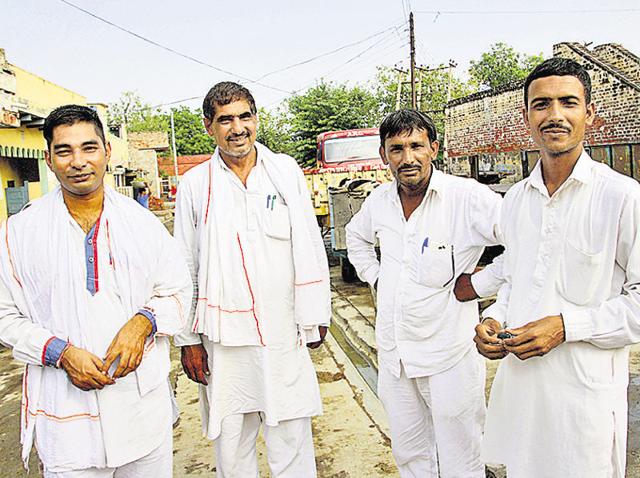Sakshi Malik wins laurels but her village struggles to overcome patriarchy
Malik’s village, the biggest in Haryana, is divided into four panchayats. Of these, two villages have women sarpanches. However, both the women are homemakers, while their male family members lead the show.
Haryana’s wrestler Sakshi Malik, made the nation proud by winning a bronze medal at the Olympics.

But back in Mokhra, Malik’s native village in Rohtak, women’s dream of attaining equality with men seems far-fetched.
Read | Rio 2016: Sakshi Malik is witness to Rohtak’s rise as wrestling hub
A visit to the village reveals the hypocrisy in which men spoke of ending bias on one hand, but on the other, they deprived women of their constitutional rights.
Malik’s village, the biggest in Haryana, is divided into four panchayats. Of these, two villages have women sarpanches. However, both the women are homemakers, while their male family members lead the show.
The Mokhra Khas panchayat, where Malik’s family lived, is run by woman sarpanch Laxmi Devi’s brother-in-law Anil Malik. Laxmi, a Dalit, was married into a Jat family to Anil’s younger brother Somvir, a farmer.
Since the seat for sarpanch was reserved for an SC candidate, the family made Laxmi stand for the elections and she won. However, villagers say she now sticks to tending to the household while her brother-in-law and uncle take all the decisions.
The Haryana government made it mandatory for candidates appearing for panchayat elections to complete their education up to Class 10. The policy led to some educated women sarpanches, but most of them remain victims of Haryana’s deeply patriarchal society.
When Hindustan Times reached the village, Laxmi’s brother-in-law Anil proudly introduced himself as the sarpanch. When asked about Laxmi, he said, “She doesn’t know anything about this village. My uncle Jagdish Malik and I take all the decisions and she takes care of her child.” But the de-facto sarpanch had a speech prepared on women empowerment.
“Taking inspiration from Sakshi, we want to make a wrestling academy in this village for girls. We are proud of her and want more of our girls to reach new heights,” he said.
The male members of Laxmi’s family allowed a meeting with her after much insistence but with a disclaimer — “Don’t ask her any questions. Ask us, and if you want, you can write whatever we say and attribute it to her,” Anil’s uncle Jagdish said.
Things were not much different in Mokhra Kheri. When HT called up sarpanch Yogita’s official mobile number, her husband Mukesh answered and introduced himself as the sarpanch.
What followed was yet another small speech on their plans for women empowerment inspired by Sakshi Malik’s bronze Olympic medal.
As per the 2011 Census, the sex ratio in the village was 822, lower than the state’s average ratio of 879.
While the district administration boasts that the sex ratio has gone up considerably, equality is still a distant dream.
Read | Sakshi Malik’s Olympic medal is important for gender-critical Rohtak
The district of Rohtak is one of 262 districts in India that is ‘gender critical’, areas where the sex ratio is below 900 females for every 1,000 males. Of Haryana’s 21 districts, 17 are gender critical, giving it one of the worst gender ratios in India.





